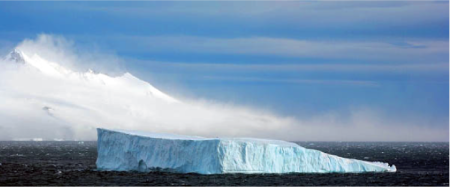| SEARCH |
-

Nov 17, 2015
Reflections on a three-decade legacy
The International Geosphere-Biosphere Programme (IGBP) will come to a close at t...
-
Nov 17, 2015
Use of and access to content on this website
Text and images produced by IGBP in house are free to use with appropriate credi...
-
Nov 12, 2015
Bella Gaia performance and panel discussion to mark IGBP's closure
A musical performance by Bella Gaia will celebrate the achievements and legacy o...
-

Towards Future Earth:
evolution or revolution?
During its three decades of existence, the International Geosphere-Biosphere Pro...
-
A personal note on IGBP and the social sciences
Humans are an integral component of the Earth system as conceptualised by IGBP. João Morais recalls key milestones in IGBP’s engagement with the social sciences and offers some words of advice for Future Earth.
-
IGBP and Earth observation:
a co-evolution
The iconic images of Earth beamed back by the earliest spacecraft helped to galvanise interest in our planet’s environment. The subsequent evolution and development of satellites for Earth observation has been intricately linked with that of IGBP and other global-change research programmes, write Jack Kaye and Cat Downy .
-
Deltas at risk
Around 500 million people worldwide live on deltas, but many of the world's deltas are sinking due ...
-
Climate change: the state of the science
A new data visualization released on the first day of the plenary negotiations at the UNFCCC’s clima...
-
Climate Change:
the State of the Science
Videos now online from the Stockholm public forum to mark the launch of the IPCC's climate report, 2...
Last Interglacial Arctic warmth confirms polar amplification of climate change
CAPE project members
Vol 25; Issue 13-14; pp. 1383-1400

The warmest millennia of at least the past 250,000 years occurred during the Last Interglaciation, when global ice volumes were similar to or smaller than today and systematic variations in Earth's orbital parameters aligned to produce a strong positive summer insolation anomaly throughout the Northern Hemisphere. The average insolation during the key summer months (M, J, J) was ca 11% above present across the Northern Hemisphere between 130,000 and 127,000 years ago, with a slightly greater anomaly, 13%, over the Arctic. Greater summer insolation, early penultimate deglaciation, and intensification of the North Atlantic Drift, combined to reduce Arctic Ocean sea ice, allow expansion of boreal forest to the Arctic Ocean shore across vast regions, reduce permafrost, and melt almost all glaciers in the Northern Hemisphere. Insolation, amplified by key boundary condition feedbacks, collectively produced Last Interglacial summer temperature anomalies 4–5 °C above present over most Arctic lands, significantly above the average Northern Hemisphere anomaly. The Last Interglaciation demonstrates the strength of positive feedbacks on Arctic warming and provides a potentially conservative analogue for anticipated future greenhouse warming.

IGBP closed at the end of 2015. This website is no longer updated.
-

Global Change Magazine No. 84
This final issue of the magazine takes stock of IGBP’s scientific and institutional accomplishments as well as its contributions to policy and capacity building. It features interviews of several past...
-

Global Change Magazine No. 83
This issue features a special section on carbon. You can read about peak greenhouse-gas emissions in China, the mitigation of black carbon emissions and the effect of the 2010-2011 La Niña event on gl...
-
INTERGOVERNMENTAL PANEL ON CLIMATE CHANGE:
How green is my future?
UN panel foresees big growth in renewable energy, but policies will dictate just how big.
-
UK:
'The Anthropocene: a new epoch of geological time?'
Royal Society, Philosphical Transactions A




















